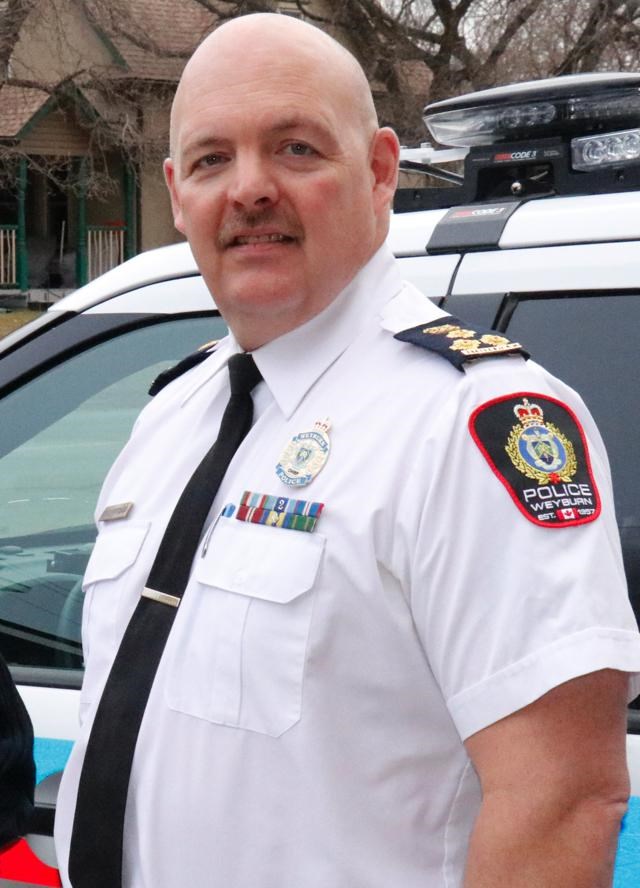Police agencies across Saskatchewan, including the Weyburn Police Service and the RCMP, are bracing for the legalization of marijuana, which takes effect as of today, Oct. 17 across Canada, and are “as ready as we can be,” said Weyburn Chief Marlo Pritchard.
The chief, who is also the president of the Saskatchewan Association of Chiefs of Police (SACP), said the Weyburn police as well as every police agency around the province have put in a lot of time and effort to get officers trained for today, when the drug becomes legal to use recreationally for the first time in Canadian history.
A number of the Weyburn Police members are field sobriety testers, and two who are drug recognition experts who have been trained to identify when a person is impaired by a drug.
There are two Weyburn officers who are drug recognition experts, Const. Jeff Bartsch and Const. Riley Ross, who can identify more of the signs of impairment by a drug, and also what kind of drug was used by a person.
“Not every case will need a drug recognition expert,” said Chief Pritchard, who noted the RCMP also has members who have been trained, so they can provide support to the city police, and vice versa when the help is needed.
“We identified the need for this a long time ago,” said the chief, who noted that much support for the training came from SGI, the Ministry of Corrections and Policing, and the Ministry of Justice, to help ensure the police throughout the province are ready to go, as impairment of drivers was felt to be one of the biggest impacts of the new law.
“It’s a substantial change of thinking, and it literally touches every aspect of what we do, including taxation and economics. Every sector of society is touched by these changes,” said Chief Pritchard. “It was fascinating for me to see all the interaction between agencies and ministries.”
As with liquor, the Saskatchewan Liquor and Gaming Agency will be regulating the sale of marijuana in retail outlets around the province, with 51 outlets approved so far around Saskatchewan.
Weyburn is approved for two outlets, with one approved so far by city council. As with all retail outlets, it will not be allowed to open for operations until they have written approval from the SLGA, after the site has been inspected for meeting all of their requirements.
Chief Pritchard expects it will take police and the SLGA the first six to eight months of legalization to work out how everything is going to work, including getting the public on-board with how marijuana can and cannot be used, particularly in regard to impaired driving offences.
There will be challenges to enforcement, such as the rule that individuals can grow up to four plants of marijuana in their homes. Chief Pritchard noted that his association and the Canadian Association of Chiefs of Police are on record as opposing this because it is basically unenforceable. If they get a call that someone is growing more plants than is allowed in a house, they will respond and investigate, noted the chief, “but the bigger issue, based on Colorado’s experience with legalization, will be in regards to impaired drivers and road safety.”
Saskatchewan will have 15 saliva test units for a one-year test period, one of which will be coming to Weyburn, said chief Pritchard, and these will be used in much the same way as a breathalyzer unit is. The machine measures the THC level in a person’s saliva, and uses a fail-pass indicator like a breathalyzer does.
Some large centres, like Vancouver and Ottawa, have declined to use these, but they will be used for one year here to see if they can be an enforcement tool for the police.
On the question of police members using marijuana recreationally, Chief Pritchard from the provincial association has been part of a working committee along with members of the Saskatchewan Police Commission and the Saskatchewan Federation of Police Officers, and they have drawn up a set of policy guidelines for police officers, plus each individual police department will have their own standards and rules.
For the Weyburn Police Service, the base rule is “fit for duty”, said Chief Pritchard, which is the same rule as for the consumption of alcohol, where an officer is not to be on duty if they are under the influence of a drug or alcohol.
If an officer is under the influence, they can be disciplined by the police department, as is set out in the Saskatchewan Police Act governing all police officers.
“When you come to work, you can’t be impaired by any drug,” he said, noting some police departments have the rule that an officer can’t use marijuana as much as 28 days before coming on duty, as THC levels can stay in the body that long.
“From the provincial perspective, I think we’re in good shape,” said Chief Pritchard, noting the number of trained officers is good to start with, and the goal is to have more officers trained in the coming months. “We’re as ready as we can be.”



